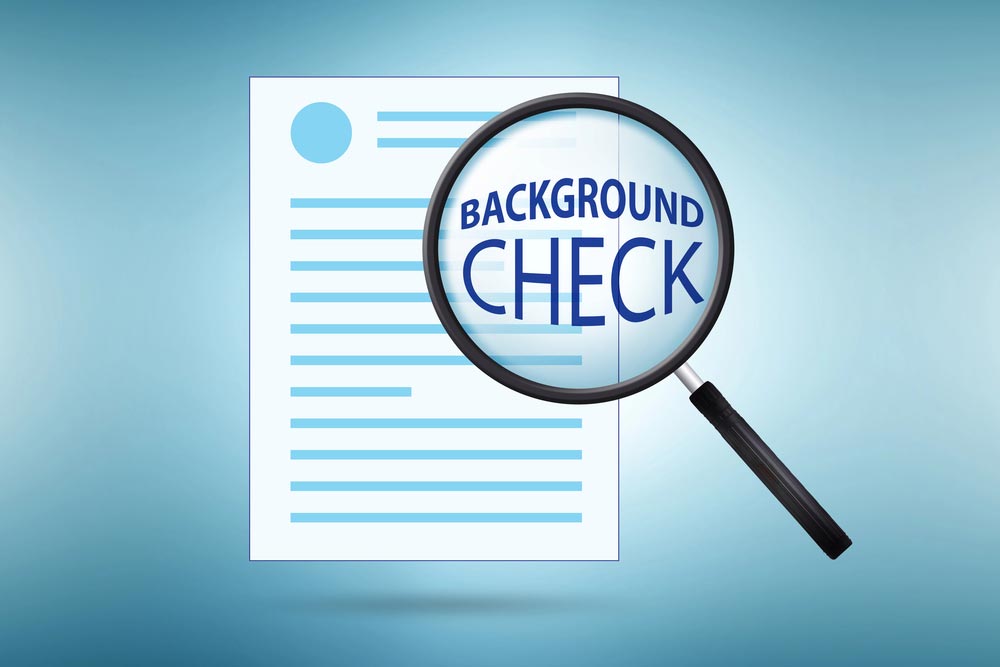Employers in Texas will usually conduct a background check to verify an applicant’s employment and education history, as well as to determine if that person has had any convictions that would disqualify him or her from the job. What will appear on a background check will depend on the type of searches that the employer has requested, but some of the common searches that they will perform include:
- Employment verification.
- Criminal history checks.
- Education verification.
- Professional license verification.
- Motor vehicle registration checks.
- Pre-employment drug tests.
When performing a pre-employment background check, you must comply with federal and state laws.

What a Background Check is in the State of Texas
A Texas background check is a type of investigation that many employers perform to check an applicant’s criminal and employment history, as well as that person’s education and other information that may be relevant to the position.
They will often work with background check providers to perform these searches. Consumer reporting agencies (CRAs) will find the requested information by searching public records and other reliable databases to put together reports.
Why Employers Run Background Checks in Texas
If you’re an employer in Texas, there may be a number of reasons why you may want to perform a background check as part of your hiring process, but some of the common reasons include the following:
- General Employment Screening — Many Texas companies perform employment background checks as part of their onboarding process, because it can help them to verify an applicant’s employment history while making sure that he or she hasn’t had any criminal convictions.
- Screening for Management Positions — Managers have a lot more responsibility than other employees, so it’s a common practice for employers to do a background check on someone who is applying for a management position.
- Screening for People in the Caring Professions — EMS personnel, first responders, caregivers, and people who work in similar professions have to care for and spend time with vulnerable individuals (such as children and elderly adults).
The information on an employment background check will depend on the types of searches an employer requests.
How to Get an Employment Background Check in Texas
Here is how you can get an employment background check in the State of Texas:
- Come up with a thorough background check policy — You should work with your management team and HR staff to come up with a thorough background check policy. It should include the types of searches you will perform for different positions, the reasons for running these checks, and the specific steps your HR staff should take while starting the process. It should also have procedures for communicating with applicants, reviewing results, and handling the information in those reports.
- Train your HR staff — Be sure to train your HR staff on how your company performs background checks and on any applicable laws. You also want to make sure they know how to handle the information that was gathered from these checks and that they are informed about the steps that are required under Title VII and the FCRA if the reports show criminal convictions or other adverse information.
- Adhere to the FCRA’s notice of consent rules — The FCRA has specific notice and consent rules for employers when they perform background checks. You should inform the applicant that your company performs background checks, and it must be in writing on a separate form. Don’t include extra information about any other topics. You must also have a signed consent form from the applicant before you perform the background check.
- Choose your provider wisely — The value of your employment background check will depend on the provider you choose to work with. You want to research a provider’s reliability, accuracy, legal compliance, and processing speed.
- Evaluate convictions individually — You don’t want to have a blanket policy for turning down people who have had a criminal conviction, because it can make your company more vulnerable to litigation and civil penalties. You want to look at every conviction individually by comparing them to the duties that are required by the job for which you’re considering the applicant.
You want to make sure you’re communicating with the applicant throughout the process so he or she stays informed, and you should contact that person as soon as you get the results.
If you’re looking for an attorney in Corpus Christi that can help you get a better understanding about the laws associated with employment background checks in the State of Texas, be sure to reach out to Gale Law Group.
